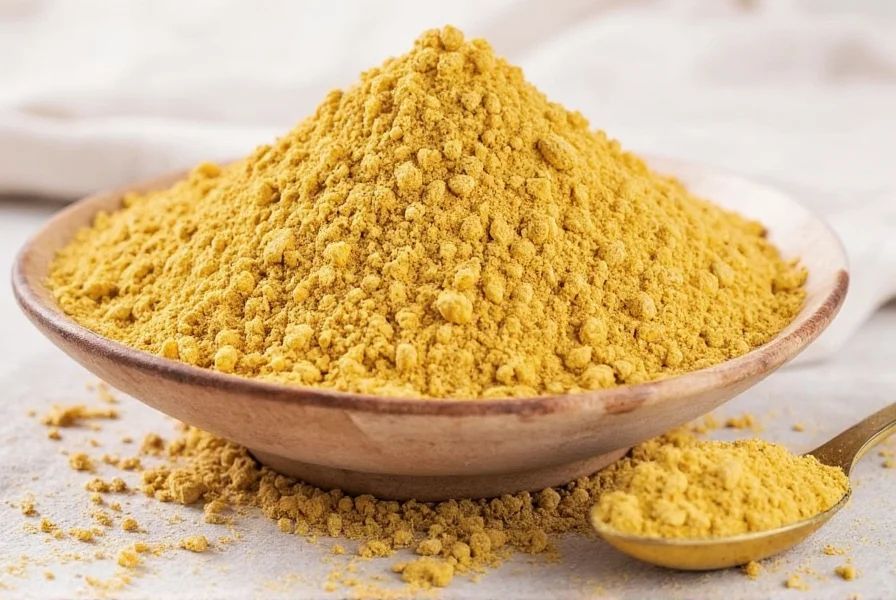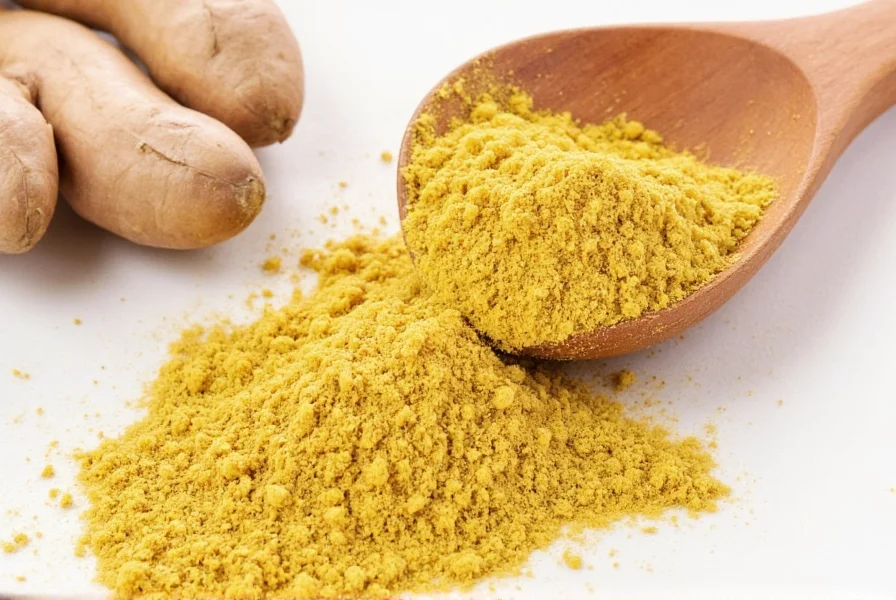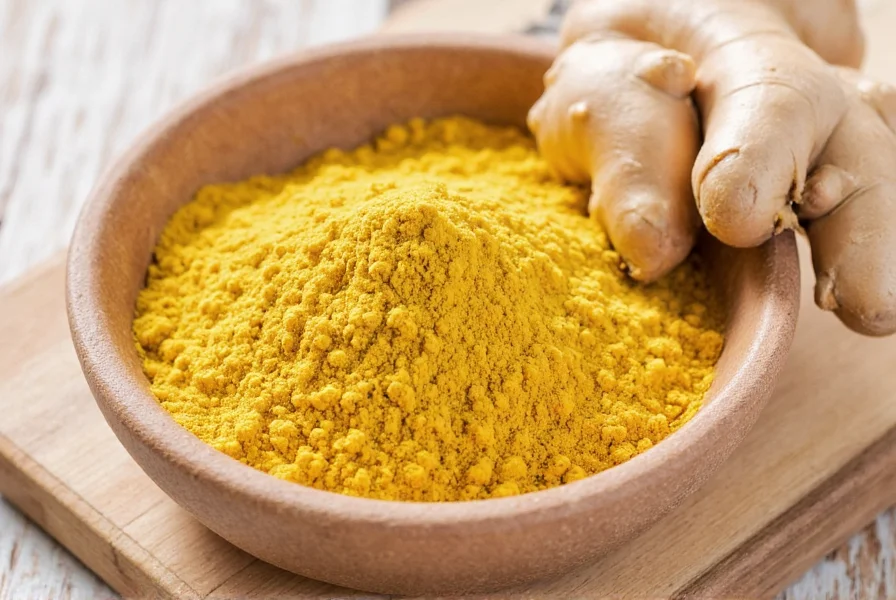Ginger powder, the dried and ground form of the ginger root, has been used for centuries in traditional medicine systems across Asia and the Middle East. Modern research continues to validate many of these traditional uses, revealing the potent bioactive compounds preserved in the drying process. Unlike fresh ginger, powder offers convenience, longer shelf life, and concentrated potency of key compounds like gingerols and shogaols.
Scientifically Supported Health Benefits of Ginger Powder
Powerful Anti-Inflammatory Effects
Multiple studies confirm that ginger powder contains significant anti-inflammatory compounds. A 2021 review in Nutrients analyzed 12 clinical trials and found that ginger supplementation significantly reduced markers of inflammation including C-reactive protein (CRP) and interleukin-6. The concentrated gingerols in powder form appear particularly effective at inhibiting inflammatory pathways, making it valuable for managing conditions like osteoarthritis. Research published in Arthritis showed that 1 gram of ginger extract daily reduced knee pain in osteoarthritis patients by 30% over 12 weeks.
Digestive Health Improvement
Ginger powder stimulates digestive enzymes and accelerates gastric emptying, which explains its traditional use for digestive discomfort. A double-blind study in the Journal of Gastroenterology and Hepatology found that 1.2 grams of ginger powder taken before meals reduced symptoms of functional dyspepsia in 87% of participants. The powder's concentrated form makes it particularly effective for settling upset stomachs and reducing bloating after meals.
| Health Benefit | Effective Dosage | Time to Notice Effects | Scientific Support Level |
|---|---|---|---|
| Nausea relief | 0.5-1g before travel | 30-60 minutes | High (multiple RCTs) |
| Muscle pain reduction | 2g daily for 11 days | 5-11 days | Moderate (several studies) |
| Digestive support | 1-1.2g before meals | 20-30 minutes | High (clinical evidence) |
| Inflammation reduction | 1-1.5g daily | 4-8 weeks | Moderate to High |
Nausea and Motion Sickness Relief
One of the most well-documented benefits of ginger powder is its effectiveness against various forms of nausea. A comprehensive analysis in Obstetrics & Gynecology concluded that 1 gram of ginger powder significantly reduced pregnancy-related nausea without adverse effects. Similarly, research in Travel Medicine and Infectious Disease demonstrated that ginger powder outperformed placebos in reducing motion sickness symptoms. The powder's convenience makes it ideal for travel—simply mix with water or take in capsule form before journeys.

Antioxidant Properties
Ginger powder contains potent antioxidants that combat oxidative stress. The drying process actually increases certain antioxidant compounds compared to fresh ginger. A 2020 study in Antioxidants found that dried ginger had higher total phenolic content than fresh, contributing to its stronger free radical scavenging ability. Regular consumption may help protect against cellular damage associated with aging and chronic diseases.
Ginger Powder vs Fresh Ginger: Understanding the Differences
While both forms offer health benefits, ginger powder provides distinct advantages for certain applications. The drying process concentrates gingerols into shogaols, which are more bioavailable and stable. This makes powder particularly effective for digestive issues and inflammation. Fresh ginger contains higher moisture content and gingerdiol, which converts to the more potent gingerol when dried.
For therapeutic purposes, ginger powder often delivers more consistent results due to standardized potency. However, fresh ginger may be preferable for culinary uses where texture and fresh flavor matter. When choosing between ginger powder benefits vs fresh ginger, consider your specific health goals and how you plan to use it.
Practical Applications and Recommended Dosage
Understanding how much ginger powder per day to take is crucial for maximizing benefits while avoiding potential side effects. Most clinical studies use doses between 1-1.5 grams daily for general health benefits, though specific conditions may require different amounts:
- Digestive support: 1-1.2 grams taken 20 minutes before meals
- Nausea relief: 0.5-1 gram taken 30-60 minutes before travel or as needed
- Inflammation management: 1-1.5 grams daily, divided into two doses
- General wellness: 0.5-1 gram daily in cooking or beverages
For those exploring how to use ginger powder for health benefits, consider these practical methods:
- Mix 1/2 teaspoon with warm water and lemon for morning digestion
- Add to smoothies for anti-inflammatory benefits
- Stir into oatmeal or yogurt
- Use in baking for natural flavor and health benefits
- Create a soothing tea with honey and lemon
Safety Considerations and Limitations
While ginger powder is generally safe for most people, certain precautions apply. Those taking blood thinners should consult their doctor before regular use, as ginger may increase bleeding risk. People with gallstones should use ginger cautiously as it stimulates bile production. The maximum recommended daily intake is 4 grams to avoid potential side effects like heartburn or mouth irritation.
Pregnant women should limit intake to 1 gram daily during the first trimester and consult their healthcare provider. Ginger powder isn't recommended for children under 2 years old. Always discuss significant dietary changes with your healthcare provider, especially if managing chronic conditions or taking medications.

Conclusion: Maximizing Ginger Powder Benefits
Ginger powder offers a convenient, potent way to access the health-promoting compounds of ginger root. The scientific evidence supporting ginger powder for digestion, inflammation reduction, and nausea relief continues to grow, making it a valuable addition to a health-conscious lifestyle. When selecting ginger powder, choose organic varieties from reputable sources to ensure purity and potency. Remember that while ginger powder provides significant health benefits, it works best as part of a balanced diet and healthy lifestyle rather than as a standalone solution for serious health conditions.
Frequently Asked Questions
What is the most effective way to consume ginger powder for maximum health benefits?
For maximum absorption of ginger's active compounds, mix 1/2 to 1 teaspoon of ginger powder with warm (not boiling) water, as high heat can degrade some beneficial compounds. Adding a small amount of healthy fat like coconut oil or taking it with a meal enhances absorption of its fat-soluble components. Many studies showing significant benefits used doses of 1-1.5 grams daily, typically divided into two doses taken before meals.
How does the potency of ginger powder compare to fresh ginger?
Ginger powder typically contains about 10 times the concentration of active compounds compared to fresh ginger by weight. The drying process converts gingerols to shogaols, which are more stable and bioavailable. One teaspoon (approximately 2 grams) of ginger powder generally equals 1 tablespoon of freshly grated ginger. However, fresh ginger contains gingerdiol which converts to gingerol when dried, so both forms offer unique benefits depending on your health goals.
Can ginger powder help with weight management?
Some research suggests ginger powder may support weight management through several mechanisms. A 2019 study in Nutrition Journal found that 2 grams of ginger powder daily reduced hunger and increased thermogenesis in overweight participants. Ginger appears to enhance metabolic rate, improve digestion, and may help regulate blood sugar levels. However, it should be viewed as a complementary approach rather than a standalone solution for weight management, working best alongside a balanced diet and regular exercise.
How long does it take to experience benefits from regular ginger powder consumption?
The timeframe for experiencing benefits varies by application. For nausea relief, effects can be felt within 30-60 minutes. Digestive improvements often become noticeable within 1-2 weeks of regular use. More systemic benefits like reduced inflammation or pain relief typically require consistent use for 4-8 weeks. Research on osteoarthritis patients showed significant pain reduction after 12 weeks of daily ginger supplementation. Individual results vary based on dosage, health status, and consistency of use.
Are there specific storage recommendations to maintain ginger powder's potency?
To preserve ginger powder's potency and freshness, store it in an airtight container away from light, heat, and moisture. A dark glass jar in a cool pantry works best. Properly stored, ginger powder maintains optimal potency for 2-3 years, though it remains safe indefinitely if kept dry. Avoid storing near the stove or in clear containers on countertops, as light and heat accelerate the degradation of volatile compounds. For longest shelf life, consider dividing larger quantities into smaller containers to minimize exposure to air each time you use it.











 浙公网安备
33010002000092号
浙公网安备
33010002000092号 浙B2-20120091-4
浙B2-20120091-4